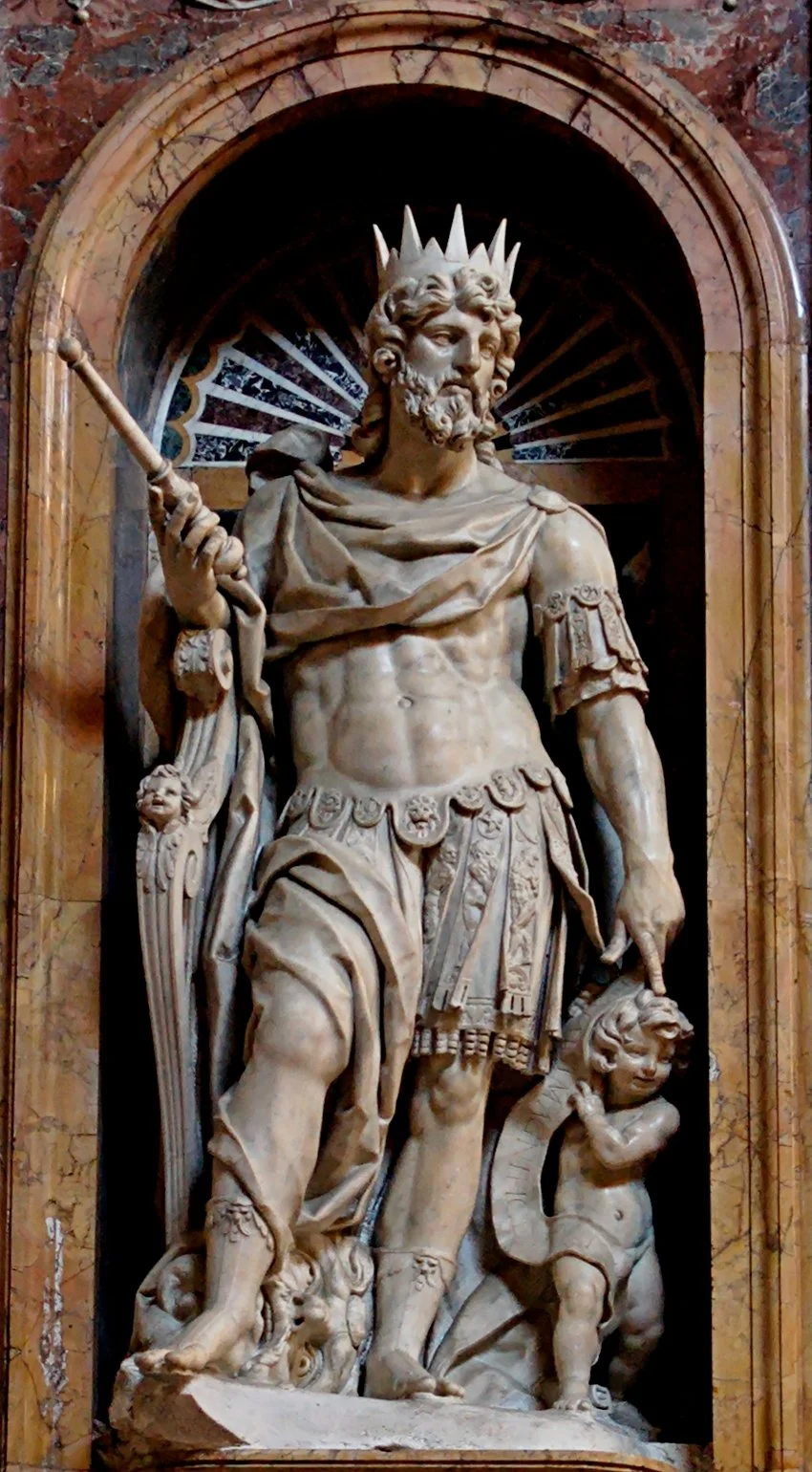The Covenant in the Time of David
Covenant Theology 101 (#9)
Covenant Breakers and the Covenant Keeper.
A man dreams of building the perfect home—beautiful cedar, pure gold, perfectly cut stones. But as he wakes, he realizes the One he wants to build for, has been building him all along into a house for himself. He rubs his eyes: “What a strange dream!”
That’s the story of David. It’s the story of grace.
Our lives are stories with beginnings and ends, and in between, moments that make us who we are. Scripture tells the same kind of story—from “in the beginning” (Gen. 1:1) to “a new heavens and a new earth” (Rev. 21:1) in the end. In-between is the greatest story ever told of an infinite God, who decided to share his life and love, by way of covenants: with Adam, Noah, Abraham, Moses, and David.
Continuing Covenant Theology 101, we explore the covenant in the time of David.
David’s Plan: A House for the Lord
David’s wanted to build a house for the Lord. While he “lived in his house and [had] rest from all his surrounding enemies,” he said to Nathan the prophet, “I dwell in a house of cedar, but the ark of God dwells in a tent” (2 Sam. 7:1, 2).
Perhaps he recalled the law that one day the Lord would no longer dwell in a tent like his people but would be located in one place (Deut. 12). Yet the Lord said he would choose the location. David was at peace, prosperous, and took initiative to do something for God. His heart was struck that he lived in a cedar house while the King lived in a mere tent.
But God was about to show David that grace always moves the other way. Before David could build anything for God, God was already building something far greater for David.
Nicolas Cordier’s King David in the Borghese Chapel, Basilica di Santa Maria Maggiore, Rome
The Lord’s Promise: A House for David
The Lord replied: “Would you build me a house to dwell in?” (2 Sam. 7:5) The question cut to the heart. God is utterly free to do his will, and not be boxed in by our plans: “The God who made the world…does not live in temples made by man, nor is he served by human hands, as though he needed anything, since he himself gives to all mankind life” (Acts 17:24–25).
God never asked for a house. If he wanted one, he’d determine when and where! Who did David think he was to build anything for the Lord: “Would you build me a house”—because David was a man of war and blood? (1 Chron. 28:3). He was content to dwell in a tent—among his people, not above them—since the days of the Exodus (2 Sam. 7:6, 7)
What condescension! The Lord of glory was content to stoop and live among his wandering people, like them in tents. One day he’d stoop even lower: “though he was in the form of God, did not count equality with God a thing to be grasped, but emptied himself, by taking the form of a servant, being born in the likeness of men” (Phil. 2:6–7).
Then came the heart of God’s covenant promise. He reminded David of his past faithfulness: “I took you from the pasture…that you should be prince over my people Israel” (2 Sam. 7:8). From shepherd to king—pure grace! His faithfulness was in the present: “I have been with you wherever you went” (2 Sam. 7:9). Some of this language fulfills ancient promises: “I will make for you a great name” (2 Sam. 7:9). That’s Genesis 12! “I will appoint a place for my people Israel and will plant them, so that they may dwell in their own place…I will give you rest” (2 Sam. 7:10, 11).That’s Genesis 15! Ancient promises were echoing again: rest, land, and a name.
Will this God be there for you when you need him? Contrary to our investments—“past performance is not indicative of future returns”—with God, his past faithfulness is the reason we can trust him now and in the future!
Then a play on words changes everything: “the Lord will make you a house” (2 Sam. 7:11). David wanted to build the Lord a house of wood and stone, but the Lord would build David a house of flesh and blood—an unending dynasty. There are several guarantees.
Not even death could annul it—God would raise up David’s offspring and establish a kingdom after his death (2 Sam. 7:12).
Not even sin: God’s steadfast love would not depart as it had from Saul (2 Sam. 7:14, 15).
Not even time: David’s throne would stand forever (2 Sam. 7:16).
The Lord would be faithful until the full coming of the kingdom of David’s true Son.
Covenant Breakers and the Covenant Keeper
Here the original promise of a son (Gen. 3:15) comes into focus: through one nation (Gen. 12), one tribe (Gen. 49), and one family: “The book of the genealogy of Jesus Christ, the son of David” (Matt. 1:1). The carpenter’s son from Nazareth—the Builder’s Son—was the true and greater King David, whose throne will never end.
We are covenant breakers who think we can build something for God—a ministry, a name, a legacy. God doesn’t need our “houses;” by grace he makes us into his house! “You also like living stones, are being built into a spiritual house” (1 Peter 2:5). The Davidic covenant tells us salvation isn’t about what we build for God but what the Covenant Keeper has built for us—the Son who became flesh, was crucified, raised to reign forever, and who now makes his home in us by his Spirit. When your plans fall apart, remember: the God who made a house for David is still at work, shaping living stones into a dwelling for his glory.


